Presentation of EURAM 2016 Development Working Groups (DWGs)
Dear EURAM members and friends,
Join us in Paris on the 1, 2, 3 and 4 June for the 2016 EURAM Conference and on the 31 May afternoon for our LABs!
DWGs are opportunities to experiment with new session formats and ideas that might not fit easily within the confines of the regular conference program. Sessions will last from 1:30 to 3 hours. Some examples may be roundtable discussions, brainstorming sessions, methodological workshops, and technology demonstrations.
Around the theme of our Conference, “Manageable Cooperation?”, we invite you to participate in the DWGs sponsored by EURAM SIGs. Please, explore them; discover the issues they tackle, you may even contact the corresponding proponent before the conference in order to choose those debates that you wish to join. You will find more information about each DWG in the related documents.
DWG 03 - Collaborating for Sustainability – (sponsored by the “SIG General Conference”) - Susan Jackson - This email address is being protected from spambots. You need JavaScript enabled to view it.
Sustainability is a global challenge that crosses many boundaries and meeting the challenge requires effective collaboration amongst diverse stakeholders, including scholars from different disciplines, businesses that also compete with each other, governments founded on differing ideologies, non-profit organizations, human rights organizations, etc. The complexity of the sustainability challenge makes effective collaborating imperative. To facilitate such collaborating, this DWG offers a forum for interested parties to establish new connections that will facilitate future research efforts and share practical knowledge (e.g., tools for collaboration, case examples of effective collaborations) for managing collaborations amongst diverse stakeholders with a shared interest in sustainability.
DWG 04 - Competency Measurement in Healthcare Management Education and Practice - (sponsored by the SIG Public and Non-Profit Management) – Stefan Kunz - This email address is being protected from spambots. You need JavaScript enabled to view it.
The competence of health service managers (HSM) is critical for healthcare reform and efficient healthcare delivery. Competence is also an essential concept for accrediting academic programs that provide health management education and for professional organisations that credential HSMs. Research defining and measuring management competence of HSMs has been published internationally. This DWG will provide a platform for knowledge sharing and exploring collaboration to advance global research. The lack of empirical evidence linking management competence with better delivery outcomes limits the level of interest and investment in competency research. Formulating a research agenda on this topic will be the second focus of the DWG.
DWG 05 - Dealing with crisis, uncertainty, and the unknown through cooperation – (sponsored by the SIG Innovation) - Wolfgang Guettel - This email address is being protected from spambots. You need JavaScript enabled to view it.
During the last decades tremendous turbulences have been shaking our economy, partly to its very foundations. There is agreement that organization studies need to further investigate the role of organizations and their actors in coping with such turbulences as environments become increasingly volatile. This DWG aims to explore how managers deal with uncertainty and unknowness, and which strategies and heuristics they use to reduce ambiguity and to venture into the unknown and the emergent. The purpose of the DWG is to bring together practitioners’ and academics’ views and stimulate discussions and advancement on this topic. Based on a kick-off presentation there will be a world café and round table discussions that facilitate knowledge exchange. Finally there will be a closing round where concrete theory based practical implications are developed.
DWG 06 - Democratizing Learning and Development through Art-Based Mediation and Playful Modeling - (sponsored by the SIG Innovation) - Klaus-Peter Schulz - This email address is being protected from spambots. You need JavaScript enabled to view it.
In the field of innovation research and practice, learning and development are of growing importance. We see a particular benefit in participatory processes applying "art-based mediation" and "playful modeling" ( e.g. drama, building blocks, cardboard, drawing, performance art, music) to integrate diverse stakeholder groups.
With the DWG we intend to provide a discursive frame where participants can bring in, experience, reflect and discuss art-based mediation and playful modeling in interactive round table sessions. We will contribute to the question of future learning and development in professional and university contexts using art based mediation and playful modeling.
DWG0 7 - Entrepreneurship and intrapreneurship: developing innovation culture – (sponsored by the SIG Entrepreneurship) - Rosana Rreis - This email address is being protected from spambots. You need JavaScript enabled to view it.
The aim of this DWG is to set a panel with Scholars and Practitioners to discuss how an appropriate entrepreneurship culture could be developed first, inside an organization and second, outside the organization vis-a-vis its ecosystem. Considering the importance of innovation on a company's success, it is important to develop and optimize the entrepreneurial skills and competencies of employees. Entrepreneurs are integrators that combine the talents of technical and marketing elements, establishing new products, processes and services. Our aim is to gather insights on how cultural settings may create the favorable context for sustainable entrepreneurship and innovation practices. Indeed, cultural aspects, such as the enforcement of power, may influence innovation and entrepreneurship, shaping the extent to which they emerge and unfold. To address this issue we intent to explore the role of culture at the individual, organizational and institutional level within the context of entrepreneurship and its practice.
DWG 08 - Exploring employer branding – (co-sponsored by the SIGs Business for Society and Organizational Behaviour) - Manfred Auer - This email address is being protected from spambots. You need JavaScript enabled to view it.
Despite its intensified practical relevance employer branding remains a relatively under-researched management tool and practice (Edwards & Edwards, 2013; App et al, 2012; Lievens et al, 2007). Given its interdisciplinary character employer branding has great potential for a variety of theoretical perspectives. Within this Development Working Group we are focusing on three different research themes: (1) Sustainability and employer branding, (2) Conceptualizing employer branding and (3) Ownership of employer branding. The objective of this DWG is to deepen our understanding of and create new vistas on employer branding and explore its potential to be or to become a meaningful tool to foster positive employment experiences.
DWG 09 - Fablab, coworking space, start-up accelerator… New spaces of cooperation? - (sponsored by the SIG Entrepreneurship) - Julie Fabbri - This email address is being protected from spambots. You need JavaScript enabled to view it.
In line with the theme “Manageable Cooperation?”, we propose a development working group on new collaborative practices and spaces for business development. Scholars and practitioners will discuss about new places of work like coworking spaces, fablabs, start-up accelerators, innovation labs... whatever they are independent, academic, public, or corporate entities. Such workspaces recently emerged to support more mobile and flexible ways of working, but their impact on occupants has received few exploration yet in the literature. Our objective is to propose new avenues of research on the topic, and connect with a community of researchers that would engage in such issues. A visit of the Descartes FabLab will also be proposed.
DWG 10 - Future and relevance of academic work: Role of Impactful and engaged scholarship - (co-sponsored by the SIGs General Conference and Business for Society) - Mustafa Ozbilgin This email address is being protected from spambots. You need JavaScript enabled to view it.
This Development Working Group –Future and relevance of academic work: role of impactful and engaged scholarship- is an opportunity to bring together scholars with diverse perspectives on impactful and engaged scholarship and future relevance of academic work in order to exchange innovative approaches to practice, policy and research in the field. Defining impact broadly as demonstrable contribution that excellent research makes to society and economy, this DWG aims to generate context-specific understanding of the notion of impact; to engage with key stakeholders in shaping the future agenda of impactful research; and to focus on how to support an academic career espoused with humanistic, social and developmental values.
DWG 11- How to make common? Solving tensions in social and solidarity organizations - (sponsored by the SIG Business for Society) -Amina Béji-Becheur - This email address is being protected from spambots. You need JavaScript enabled to view it.
Clearly, a third way has recently emerged in the social and solidarity economy (SSE): companies that hybridize different kinds of management models. New practices are developing that tackle both resistance to management tools and trivialization by management tools by combining practical concern for professionalization and control by overall performance. This approach is controversial in SSE because activist stakeholders in the field still view management, at worst, as taboo; at best, as “dangerous”. Yet, necessarily, management cannot be done away with; indeed, it permeates the whole field. We aim to conduct comparative discussions on the cases at hand and bring out issues that might turn into an international research endeavor supplementing the “Alternative Control of Collective Interest Cooperative Companies” project.
DWG 12 - Innovating teaching Innovation – (sponsored by the SIG Innovation) - Silhem Ben Mahmoud-Jouini - This email address is being protected from spambots. You need JavaScript enabled to view it.
Firms encounter many mutations regarding the management of innovation: open innovation, business model innovation, platforms and ecosystems, exploration and experimentation, etc. This imperative translates directly in a call for education in preparing students to these mutations. There has been much experimentation on alternative ways to teach the innovation process lately. This DWG will bring together faculty engaged in designing and delivering courses on the innovation process with the intent to discuss current challenges and lessons to share.
DWG 13 - In search of altruism: Conceptualising and operationalising difficult to define concepts – (co-sponsored by the SIGs Research Methods & Research Practice and Organizational Behaviour) - Gail Clarkson - This email address is being protected from spambots. You need JavaScript enabled to view it.
While acts of seemingly altruistic behaviour are not disputed, the claim that altruism does not exist has a long tradition in many areas of biological, economic, political and philosophical thought. We provide the opportunity for complex and challenging debate, as we attempt to conceptualise the difficult to define concept of ‘altruism’ and move on to the operationalisation of this knotty concept. Participants will be invited to be involved in and assess individual, dyadic and focus group interview techniques, and questionnaires and experimental measures, to determine their benefits, identify what key challenges are raised, and consider their iterative role in conceptualisation.
DWG 15 - Managing Transnationalism in Televison - (sponsored by the SIG Business for Society) - Iris Rittenhofer - This email address is being protected from spambots. You need JavaScript enabled to view it.
This Development Working Group - Managing Transnationalisation in Television - is an invitation to scholars who usually work with transnationalisation within their distinct fields of expertise to meet at EURAM Paris to collaborate across disciplines on management challenges arising from the transnationalisation of an organizational and geographical diverse media industry. The purpose is to informally discuss and compare the challenges arising from transnationalisation across fields of expertise, to identify alternative views, and to establish joint areas of interests or future collaboration and cooperation.
DWG 17- Open Innovation Laboratories: Platforms for Collaborative Management Research? – (co- sponsored by the SIGs Innovation and Public and Non-Profit Management) - Kathrin Moeslein - This email address is being protected from spambots. You need JavaScript enabled to view it.
Open laboratories for innovation and co-creation are a recent trend: Firms and research institutions open up new public spaces for ideation, development, prototyping and testing of innovations with “unobvious others” (Piller & Wielens 2013). Examples range from Fraunhofer’s JOSEPHS and professional industrial open lab spaces to living labs, research-oriented maker spaces and fab labs where everyone is allowed to contribute (Fritzsche & Moeslein 2015). In this DWG, we will look at their methodological implications for scientific research. Together with academics, businesses and co-creators, we will explore the potential and pitfalls of such novel spaces as platforms for collaborative management research.
DWG 18 - Simulating the governance of inter-organizational project networks - (sponsored by the SIG Project Organising) - Jaakko Kujala - This email address is being protected from spambots. You need JavaScript enabled to view it.
Agent-based simulation models provide a means to analyze and to understand the functioning of complex socio-economic systems, which often consist of many interacting entities with non-linear and stochastic interactions. In these models agents may be individuals or organizations, characterized by different properties such as objectives, values, capabilities, resources. Actors may also have an ability to learn. The objective of the DWG is to discuss use of agent-based simulation models as a research method in organizational and management research; and to apply agent-based simulation in the context of complex inter-organizational project networks.
DWG 20 - The Entrepreneurial University - (sponsored by the SIG Entrepreneurship) -Matthias Raith - This email address is being protected from spambots. You need JavaScript enabled to view it.
Transfer of knowledge from universities to society has been gaining increasing importance over the past decades. In addition, decreasing public funds and accelerating costs of research create pressure on universities to generate alternative sources of income. As a consequence, transfer, next to research and teaching, has become a third mission of universities. The purpose of the DWG is to provide a unique European platform for research on the entrepreneurial university. The focus will be on research dealing with incentive and governance structures, indicators, regional networks, and policies. The DWG will focus on prominent research topics and compare alternative research methods.
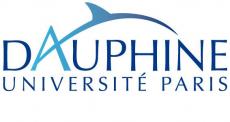 |
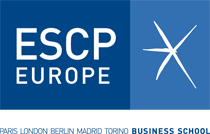 |
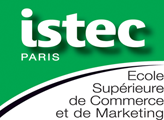 |
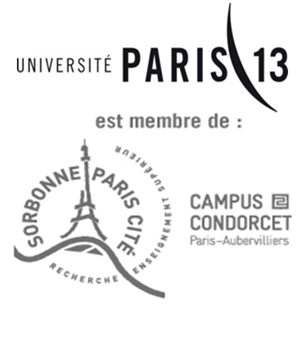 |
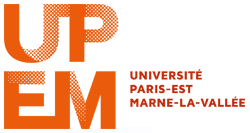 |
|
| |





